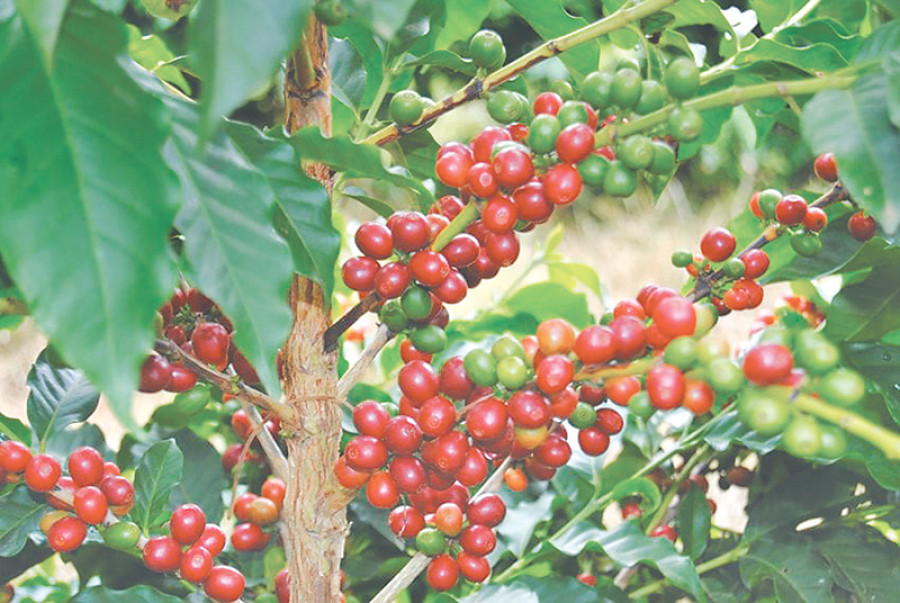Money
Nepali coffee prices hiked to support farmers
National Tea and Coffee Development Board has increased the prices of coffee to support farmers who are facing increased costs in production. The new prices will come into effect from Sunday.
Lal Prasad Sharma
National Tea and Coffee Development Board has increased the prices of coffee to support farmers who are facing increased costs in production. The new prices will come into effect from Sunday.
According to the board, the price of fresh cherry (A grade) has been increased by Rs2 per kg to Rs85. The ‘A’ grade coffee needs to be certified as organic.
Similarly, the price of ‘B’ grade coffee has also been increased by Rs2 per kg to Rs80. The ‘B’ grade fresh cherry does not require organic certification.
Likewise, parchment coffee price has been hiked by Rs10 per kg. The price of parchment ‘A’ grade coffee has been fixed at Rs425 after the hike while ‘B’ grade parchment coffee will cost Rs 410 per kg after the hike. According to the board, ‘A’ grade parchment coffee needs organic certification.
When the cherry is ripe, it changes colour into a bright and deep red and then it becomes ready for harvesting. The dried beans are known as parchment coffee.
The coffee price was revised on the occasion of 14th National Coffee Day on Friday.
Shesh Kanta Gautam, executive director of the board, said that prices have been increased on the basis of farmers’ costs of production. The price has also been increased to encourage farmers towards coffee plantation and make them feel that the government has their back, he said.
The government’s move to increase prices will directly benefit farmers, said Bindu Chandra Baral, chairman of Coffee Production Association, Kaski.
“With the revision in the prices, the government also needs to make efforts to increase production as Nepali coffee demand has been growing in the international market.”
“We need to increase coffee plantation areas in a large and commercial way.” Nepali coffee has been recognised as one of the most exportable agricultural products. “The government needs to launch a coffee production campaign nationwide, bringing private and cooperatives onboard,” he said.
Nepal produced 513 tonnes of green bean coffee in the last fiscal year, up 10 percent as compared to previous fiscal year largely due to increased plantation areas under coffee.
According to the board, coffee farms cover 2,650 hectares. The country exported 84.22 tonnes of coffee worth Rs93.7 million in the last fiscal year. The board said that imports of coffee amounted to Rs65.8 million in the last fiscal year.
The board said that increasing coffee culture in the country in recent years has boosted import. The board said that coffee imports jumped 64 percent while export dropped 11 percent in the last fiscal year.
Nepal has potential to cultivate coffee on 1.19 million hectares.
Laxman Pokhrel, director at National Tea and Coffee Development Board’s Pokhara office, underscored the need to enhance the quality of Nepali coffee to market it globally. The Prime Minister Agriculture Modernisation Project has announced Gulmi, Syangja, Arghakhachhi, Pyuthan and Palpa as coffee super zones.
According to Gautam, the board is organising a coffee investment forum.
He said that the investment forum would bring entrepreneurs and investors in a single platform to discuss the potential of investing in Nepal’s coffee sector.




 9.7°C Kathmandu
9.7°C Kathmandu.jpg)















